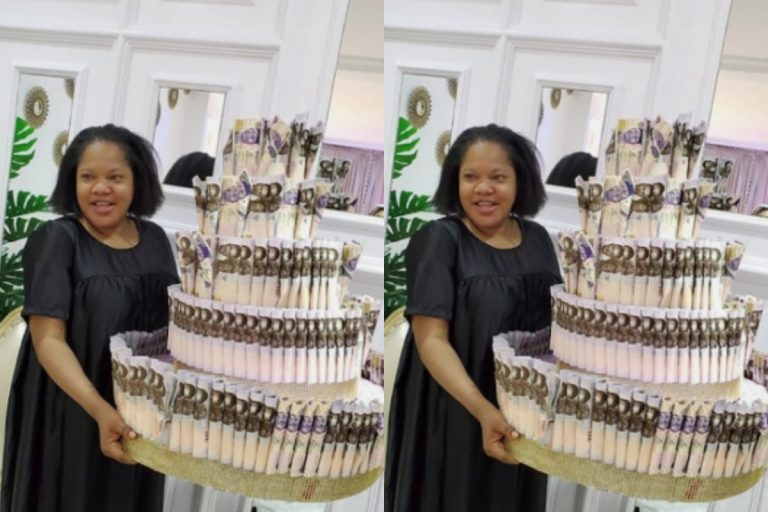
We are a day away from Valentine’s Day. A day when couples and love partners express their love for each other through different means like gifts, or cash. Some go the extra mile in getting a money flower or money bouquet and even money cakes for their romantic partners; a money bouquet is a monetary gift which is comprised of banknotes arranged in a way similar to flower bouquets while money cake is a gift made of banknotes arranged or stacked like a cake.
It is pertinent to bring to your attention that the money bouquet or money cake you are planning to give your girlfriend or boyfriend this Valentine’s Day or for their next birthday celebration although may look cute and romantic but can land you in jail; yes it constitutes a Naira abuse which is a financial crime.
The Central Bank of Nigeria, for the sake of emphasis last Friday, listed money bouquets as a form of naira abuse and admonished the general public especially love birds to desist from it and to report those found gifting their partners money bouquets or money cakes to law enforcement agencies.
Register for Tekedia Mini-MBA edition 19 (Feb 9 – May 2, 2026): big discounts for early bird.
Tekedia AI in Business Masterclass opens registrations.
Join Tekedia Capital Syndicate and co-invest in great global startups.
Register for Tekedia AI Lab: From Technical Design to Deployment (next edition begins Jan 24 2026).
Naira abuse as provided in S.21 of the Central Bank of Nigeria Act, 2007 comprises any act which tampers with the sanctity or sacredness of the Naira. This act may include; squeezing the Naira, tearing the Naira note, writing on the note, defacing the Naira, spraying the Naira notes at parties, stumping on the Naira notes, using the Naira to make a money bouquet, money flowers or money cakes etc.
Anybody who is caught doing any of these to the Naira note has committed a crime punishable with at least 6 months jail term as provided in s.21(1) of the CBN act, 2007.
Section 21 (1) of the Central Bank of Nigeria Act, 2007 provides thus; “A person who tampers with a coin or note issued by the Bank is guilty of an offence and shall on conviction be liable to imprisonment for a term not less than six months or to a fine, not less than N50,000 or to both such fine and imprisonment.”
Subsequently, for the sake of clarity, subsection 2 and 3 went further to highlight some examples of acts that may constitute abuse of the Naira and it reads thus;
(2) A coin or note shall be deemed to have been tampered with if the coin or note has been impaired, diminished or lightened otherwise than by fair wear and tear or has been defaced by stumping, engraving, mutilating, piercing, stapling, writing, tearing, soiling, squeezing or any other form of deliberate and willful abuse whether the coin or note has or has not been thereby diminished or lightened.
(3) For the avoidance of doubt, spraying of, dancing or matching on the Naira or any note issued by the Bank during social occasions or otherwise howsoever shall constitute abuse and defacing of the Naira or such note and shall be punishable under Sub-section (1) of this section.
The Central Bank of Nigeria (CBN), the Independent Corrupt Practices Commission (ICPC), the Economic and Financial Crimes Commission (EFCC), the Department of State Security Services (DSS) and other government law enforcement agencies have been all out recently, mounting as watchdogs, arresting and prosecuting people who are caught to be abusing the Naira.
Recall that two weeks ago the Independent Corrupt Practice Commission (ICPC) arrested a nollywood actress and a socialite by the name Oluwadarasimi Omoseyin who was seen in a video spraying and stumping on cash at a party. After her arrest and seizure of some of her properties, she was handed over to the Economic and Financial Crimes Commission (EFCC) for prosecution and she is currently facing prosecution brought pursuant to S.21 of the CBN Act, 2007 and she is likely to face a 6-month jail term for her offence (if and when found guilty).
Do not allow the CBN, the ICPC or the EFCC to use you as a scapegoat. Gift your partners cash gifts if you must in a way that will not constitute abuse to the sanctity or sacredness of the Naira.



